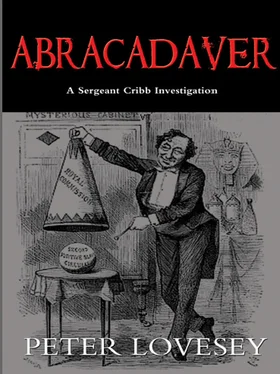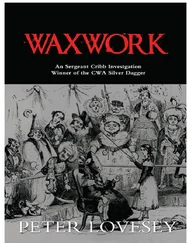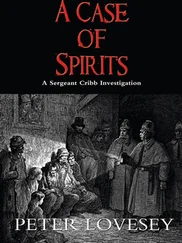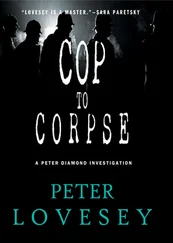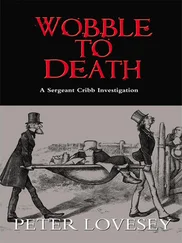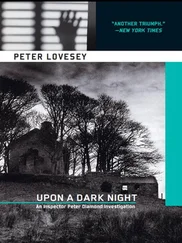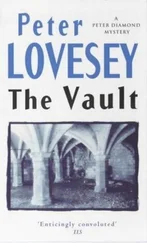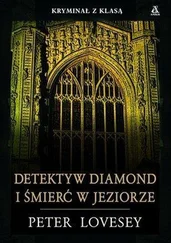‘We could list them among the missing persons in the Police Gazette.’
‘Already arranged. But the fact remains that six people have come to grief on the stage, lost their jobs and disappeared in the space of four weeks. With Woolston it could have been seven. D’you see now why I want to keep a watch on Albert?’
Thackeray was on his feet. ‘Blimey yes, Sarge! We can’t leave a job like this to that young cub who brought in the cocoa. I’ll get round there straight away!’
Cribb raised his hand. ‘And a precious fine plain clothes man you’ll be, standing in a Lambeth street all night in your opera hat and cape. Better leave it to young Oliver and get yourself some sleep. Ask Sergeant Flaxman if there’s a section house with a spare bed. And borrow a set of clothes for the morning. What’s the time?’
‘Just above your head, Sarge. Ten minutes past midnight.’
‘Capital! I’ll snatch a quiet glass of rum and shrub before they close. Look out for me in the morning.’
CHAPTER
6
FOR THE SECOND TIME in five minutes Thackeray eased a forefinger between his neck and the collar of Sergeant Flaxman’s shirt. Borrowed clothes! If they didn’t chafe you because they were so tight, they constricted your circulation somewhere. What was the matter with the Kennington Road Constabulary, that they couldn’t produce a set of toggery to fit an average—well, slightly larger than average—man? Were they all stunted, or worn thin by beat-bashing, or something? You would almost think they had got together to produce the least comfortable set of ‘plain clothes’ possible. They couldn’t have known he had tender skin in the area of his neck when they gave him the coarse flannel shirt. But knickerbocker tweeds! He had, on rare occasions, seen Londoners wearing such things; only in parks, though, never the seedier backstreets of Lambeth. Yet when the moment of choice came in the mess-room, and he stood in his underwear with a pile of discarded, undersized clothes behind him, there were just two survivors; the knickerbockers and a red velvet smoking-suit. Lord! What a picture that presented of the off-duty hours at Kennington Road! Knickerbockers it had to be, then, with a deerstalker and elastic-sided boots to match. And now he shrank into the shadows of the asylum wall, half-expecting some nervous passer-by to suppose he had just climbed over.
About twenty past six. Too early, perhaps, for anything dramatic to happen, but he could not afford to relax. There was a hint of October mist in the air, but from where he was, sheltering against a buttress formed by two rows of bricks, he could already see lights appearing at windows in the terrace opposite. No sign of life from Albert’s room yet; being a theatrical, he would be accustomed to a later start than most working men. The poor beggar was going to wake up stiff this morning, too; there wasn’t much to tempt him from a warm bed.
Activity at the end of Little Moors Place: three cats came running from the shadows to meet the milk-cart. The milk-woman hitched two large cans to the wooden yoke slung across her shoulders and moved to the first house to fill the jugs on the doorstep from her tin measure. The cats waited, mewing, for some to be spilt.
She was the first person he had seen in the road since he relieved P.C. Oliver on the stroke of six. A promising member of the Force, young Oliver. Hadn’t batted an eyelid at the deerstalker and knickerbockers. Recognised who it was straight away; perhaps the beard was the clue. Thackeray hoped it was nothing else. Section 11 of the Police Code was constantly in his mind: It is highly undesirable for detectives to proclaim their official character to strangers by walking in step with each other or in a drilled style, or by wearing very striking clothing or police regulation boots or by openly recognising constables in uniform or saluting superior officers. Just as well young Oliver himself had spent the night in uniform; Section 11 called for a rare amount of concentration. Years of experience. Even so, the lad might make a detective one day. He certainly had sharp powers of observation.
A postman now started at number one. What was that he was whistling? The fellow most have been at the Grampian the night before. ‘And that prevents yer feet from gettin’ sore’ indeed! A fine tune for a postman to be whistling. Why was it always the bobby who was a public laughing-stock? The song was in damned poor taste, too. Bad enough being prone to corns and blisters, without being reminded about them by damned-fool postmen. He shook his head indignantly, chafed his neck on the collar and swore to himself.
Not long after, he detected something distinctly odd in the postman’s behaviour. Having passed up the street, making his delivery as the milkwoman had done, the fellow marched back to number one and commenced his round again! And when Thackeray observed more closely, he saw that although the postman was carrying a letter in his right hand he did not deliver it. Instead he paused at the door, tapped the envelope against his chin, turned and moved on to the next house. The performance was repeated at each house in the street, and then the whole process began again at number one.
Decidedly irregular! Thackeray was contemplating casually crossing the road to scrutinise the postman more closely, when another figure appeared from the shadows, carrying a pole: the lamplighter. Best, in the circumstances, to wait till he had attended to the single lamp-post in the road, and gone. But would you believe it, instead of getting on with his work, the wretched man was leaning against the lamp-post and lighting a cigarette. Infuriating!
Then there was a most singular development: the postman abandoned his fourth sterile tour of the front doors and crossed to speak to the lamplighter. They were too far away for their conversation to be audible, but if only they would turn a fraction under the light it might be possible to see . . . Good Lord! The postman had removed his cap to reveal an unmistakable shock of upstanding grey hair. Major Chick. What the devil!
Thackeray pressed himself back behind the buttress, wrestling with the significance of what he had seen. A private detective masquerading as a postman? And in Albert’s road at half past six on a Sunday morning? Was this the way investigations were conducted in the private sphere? Really, some people would stop at nothing. What was the Major doing talking to a lamplighter, anyway? Was it even conceivable that Major Chick was no Major, but a postman masquerading as a detective masquerading as a Major? Or one of the criminal class masquerading as a postman masquerading . . . ? Diabolical to contemplate!
Footsteps unexpectedly invaded his deductions, a heavy, regular tread approaching on his side of the road. What on earth now? Little Moors Place was busier than the ruddy Strand. He was certain to be seen this time. Couldn’t avoid it. Damn the knickerbocker suit! If only there were some notice on the wall he could appear to be reading. He felt so infernally awkward, standing there in eccentric clothes, facing a row of houses where people were putting on their lights and getting dressed. Why, anyone could put the most appalling construction on his presence there. And—Heavens above!—it was a uniformed police officer approaching.
‘No action yet, Mr Thackeray?’
Jerusalem! Young Oliver again.
‘What the devil have you come back for?’
‘Me, Mr Thackeray? I’m on my way home. I live at number thirteen, you see, across the road. You can knock if you want any help. I’ll bring you over a cup of tea shortly.’
God help the Metropolitan Police! That lad had seemed so promising. ‘Just move on,’ Thackeray hissed, ‘and don’t stop until you’re inside your house with the door bolted and if you so much as think of putting a foot outside, I’ll . . .’
Читать дальше
